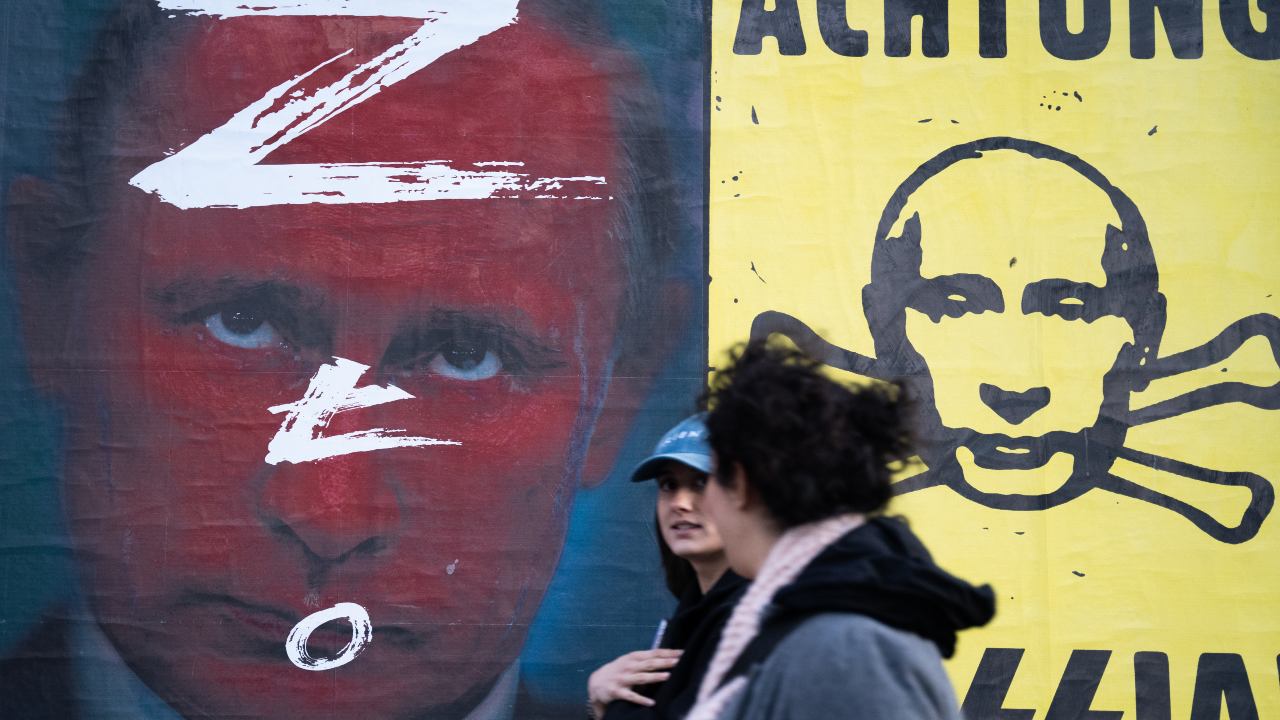Late Putinism: Mafia State
Spectacular violence is now at the heart of Russian politics.
August 27, 2023

Vladimir Putin rose to power amid mass murder (apartment block bombings) and war (Chechnya). His regime habitually assassinates rivals, critics, and defectors at home and abroad. Yet the killing of Yevgeny Prigozhin—whose private jet blew up in mid-air last week—is different. Unlike other victims, the Wagner Group founder was not a has-been or a wannabe. He was the quintessential insider, exemplifying modern Russia’s fusion of business, government, propaganda, and thuggishness.
Prigozhin, like his business empire, was Putin’s creation. The ex-chef’s job was to serve his master, not to challenge him. After the grave miscalculation of the June mutiny, his end — death or imprisonment — should, therefore, have been swift and tidy, not hesitant and then messy. The two-month delay, followed by the plane crash, suggests that the Russian leader miscalculated, changed his mind, and then resorted to theatrical tricks to recover his prestige.
The malaise goes beyond Prigozhin. The sacking of General Sergei Surovikin as commander of the aerospace forces is part of a wider purge within the military of people who may have sympathized or collaborated with the failed coup. Also in Putin’s firing line are the putschists’ cheerleaders, the ultra-patriots who believe the Kremlin has waged war too feebly. The loudmouth ex-FSB officer, Igor “Strelkov” Girkin, was arrested and charged with “extremism” last month. This crackdown creates a perfect environment for score-settling and blame-shifting. It is a severe distraction from the war in Ukraine. And it corrodes the roots of Putin’s power.
The Russian leader’s greatest achievement is the combination of modest personal freedoms and predictability. Russians may not like the rules, but they know what they are. Play along, and today will be much like yesterday, tomorrow the same, and you can get on with your life. That may seem humdrum by the standards of other countries. In Russia, with its history of absolutism and arbitrariness, this ordinariness is rare and cherished. Indeed, the past 25 years have been the longest period of “normality”—defined, I stress, by Russia’s bleak standards—in the country’s history. Violent upheavals fray that legacy.
They also damage the perceptions of omniscience and omnipotence that underpin Putin’s authority. Once these illusions puncture, power in Russia is up for grabs. Putin now looks erratic and out of touch.
The crunch will come in the 2024 presidential election, when Putin will need an unlikely 80% of the vote to match his previous triumphs. This should be a formality. Now, it looks beset with pitfalls. The deadline also raises the stakes in political maneuvering before then. If you think the boss is looking increasingly wobbly, it becomes dangerous to wait. Nobody likes a loser, so place your bets on other, likelier winners. That means more paranoia, more plotting, more private armies.
Killing Prigozhin, in short, was a tactical success for Putin but a strategic defeat. The Russian leader has shown that he can still wield power ruthlessly. But he has done so in a way that damages the system of rules, penalties, and relationships that sustain his rule. Violence was once political currency on the fringes of Russian power; now, it is at the center.
Welcome, therefore, to the next and perhaps final phase of Putinism. This started with the promise of stability and modernization, only later evolving into overt anti-Westernism, militarism, and neo-Soviet imperialism. The carrots were many, and the sticks fewer. The threat of violence was more effective than its use. In this new phase, the bombast is empty, the economy stagnant, victory is out of sight, and friends (notably China) are impatient and skeptical. Force is the ailing leader’s last and perhaps only resort.
Europe’s Edge is CEPA’s online journal covering critical topics on the foreign policy docket across Europe and North America. All opinions are those of the author and do not necessarily represent the position or views of the institutions they represent or the Center for European Policy Analysis.
No comments:
Post a Comment